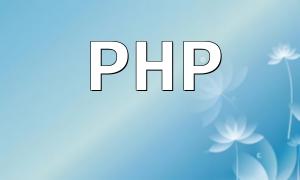In the modern programming world, C language and PHP are frequently mentioned. Despite significant differences in functionality and use cases, both languages have their unique advantages. This article will provide a comparative analysis of these two programming languages, helping readers better understand their features and appropriate use cases.
C language is a general-purpose programming language developed by Bell Labs in 1972. Its design philosophy focuses on system programming and low-level development, making it widely used in operating systems, embedded systems, and high-performance applications. Key features of C language include:
PHP (Hypertext Preprocessor) is a widely-used open-source server-side scripting language. PHP is especially suited for web development, capable of generating dynamic web pages. Its advantages mainly lie in:
When choosing a programming language, the application scenario is often a key factor. C language, due to its efficiency and low-level operation convenience, is commonly used in:
On the other hand, PHP is mainly used in web development and is suitable for:
C language is a compiled language, and the executable files it generates are highly efficient, making it ideal for performance-critical scenarios. In contrast, PHP is an interpreted language, which typically results in lower performance. However, thanks to modern servers and caching technologies, PHP's performance in web applications can be well-optimized.
For beginners, PHP has a gentler learning curve, making it easier to grasp basic knowledge and development skills. On the other hand, C language requires a deeper understanding of computer science theories, resulting in a higher learning cost.
Both C language and PHP have rich community support and learning resources. However, PHP's community is more active and offers a vast array of frameworks and tools, which is a significant advantage for web application development.
In conclusion, both C language and PHP have their strengths. The choice of language should depend on the specific project requirements. If high performance, efficient data processing, and system-level development are needed, C language is the ideal choice. For web development, PHP undoubtedly stands out as a strong competitor. We hope that this comparative analysis helps readers better understand the characteristics of both languages and make an informed decision in their future development projects.









